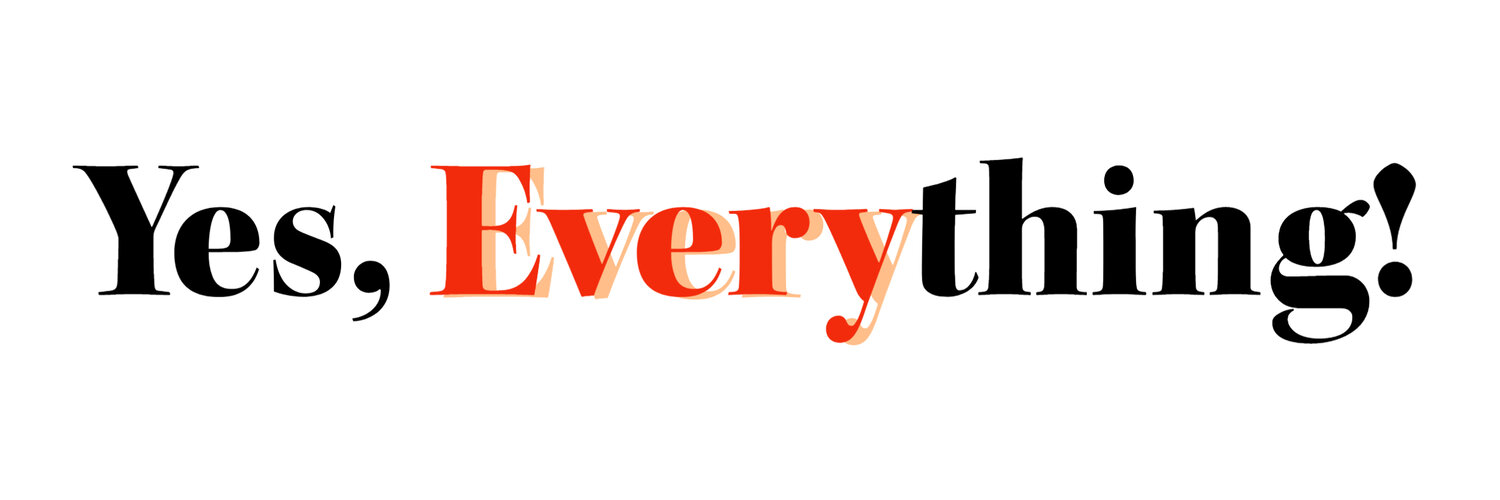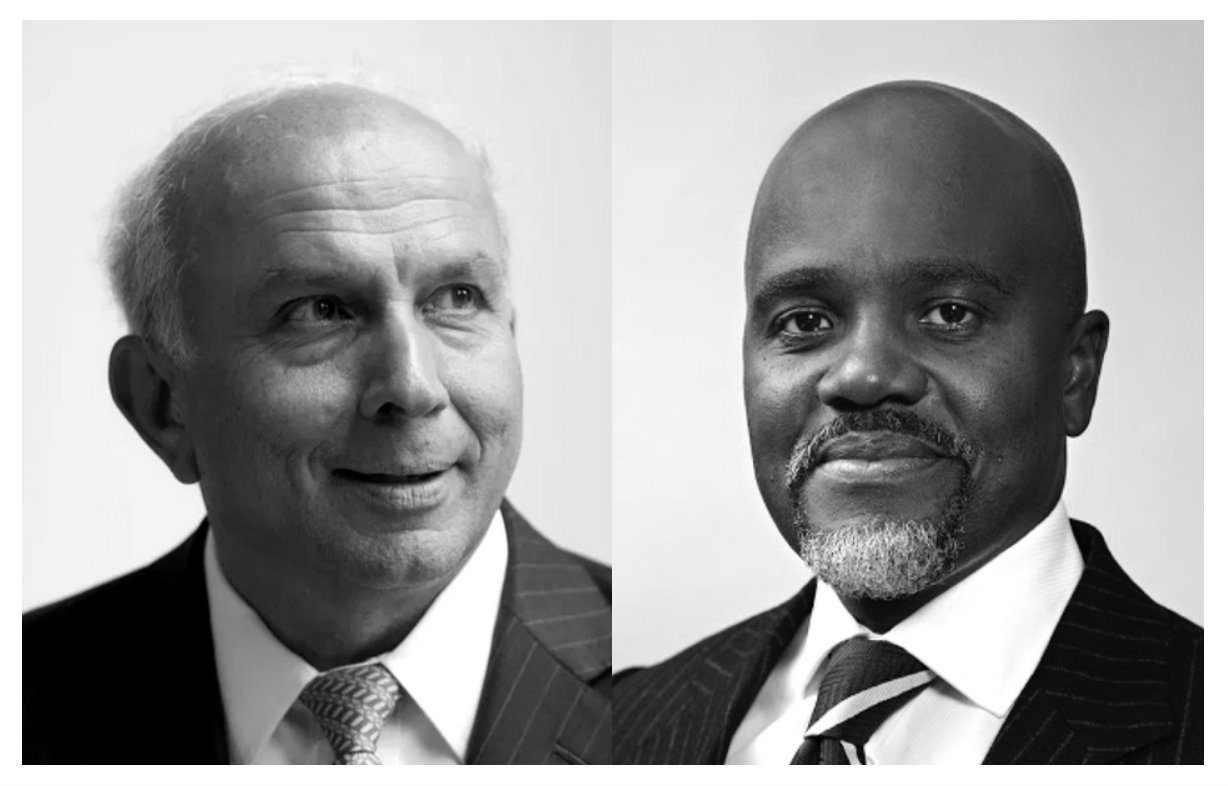The Blackwash: How BlackNorth Initiative is benefiting from anti-Blackness
Fairfax Financial founder Prem Watsa (left) and BlackNorth founder Wes Hall. Images taken from the BlackNorth website.
The Canadian lobby group claims to be fighting anti-Black racism. So why is it accepting $1 million from the largest investor in the United States’ racist, for-profit bail system?
By El Jones and Desmond Cole
May 6, 2021
Since its founding by businessman Wes Hall nearly a year ago, the BlackNorth Initiative has found favour in Canadian business circles. Hundreds of major corporations, and some non-profit and charitable groups, have signed the BlackNorth pledge to acknowledge anti-Black racism in Canada and “create opportunities within our companies for Black people,” particularly within boards of directors.
But even as it preaches anti-racism in the boardroom, BlackNorth is accepting a major donation from the largest investor in the United States’ racist predatory bail system.
On April 14, a press release on the BlackNorth website announced a $1 million donation from Fairfax Financial. Fairfax’s founder and chief executive Prem Watsa is not only a donor to the BlackNorth Initiative, he is also a founding co-chair of the group. In other words, he is donating $1 million from a for-profit corporation he controls to a non-profit initiative he oversees.
The donation follows harsh and sustained criticism of Watsa and Fairfax by justice organizations Color of Change and the American Civil Liberties Union (ACLU). These groups have been waging a years-long campaign demanding that Fairfax give up its significant investments in the “inhumane” bail industry in the U.S.
“Billionaire businessmen like Prem Watsa should not profit from poor Black and brown people desperate to free themselves and their loved ones from jail,” asserts the Color of Change campaign. “A contract with a bail bond company really means invasive surveillance, the potential of re-arrest (even when a person makes all their court appearances), or the selling off collateral assets and foreclosure of property.”
The campaign calls upon Fairfax Financial to divest from the $2 billion industry that “fuels mass incarceration and perpetuates racial inequalities.” A 2017 report Selling Off Our Freedom: How Insurance Corporations Have Taken Over Our Bail System by the two organizations details how millions of people in the United States are forced to pay cash bail after their arrest or else face being locked up for months and even years before their cases go to trial. “The financial burden of this fee,” the report notes, “harms individuals, it harms families, and it disproportionately affects Black and low-income communities.”
In 2019, the ACLU’s Campaign for Smart Justice sent a letter directly to Fairfax Financial. The letter cited the company’s ownership of Crum & Forster, “one of the largest bail bond insurance companies in the United States.” Along with being the largest underwriter of for-profit bail, Crum & Forster continues to fight bail reform in the United States, and spends hundreds of thousands of dollars in its campaigns.
According to the ACLU, the company spends even more through the American Bail Coalition, which opposes bail reform efforts. In response to this summer’s wave of protests following the murder of George Floyd, the American Bail Coalition website featured several articles demonizing community efforts to bail arrested people out of jail, and characterizing the uprising for Floyd as violent and criminal.
Wes Hall, who founded BlackNorth amid last summer’s protests, told CBC News that Floyd’s murder compelled him to speak up about systemic racism for the first time. He recruited three co-chairs for the initiative, none of whom are Black, including Watsa of Fairfax Financial, who has pledged the recent million-dollar donation. The other co-chairs are Victor Dodig (President and CEO of CIBC), and Rola Dagher (then President and CEO of Cisco Systems Canada, now Global Channel Chief for Dell Technologies).
The BlackNorth co-chairs speaking at the launch of the group’s corporate pledge in July 2020. From left, Prem Watsa of Rola Dagher, and Victor Dodig.
The debut of the Initiative was accompanied by a pledge to end “anti-Black systemic racism” in Canada. BlackNorth invited senior leaders from “private businesses in Canada, major banks, insurance companies, international companies that have a significant presence in Canada, and the largest asset managers and institutional investors in the nation” to take part in an inaugural summit where they were asked to sign the pledge. Signatories further pledged to “deliver a statement regarding what their organization will do to combat the issue and to make our society at large free from anti-Black systemic racism.”
One thing Watsa is not willing to do to combat anti-Black racism is to divest from the exploitative bail industry. In July, 2020, the ACLU met the announcement of Watsa’s involvement in the pledge with another letter renewing their call to Fairfax. Noting Watsa’s comments in the press release, the letter highlighted the disconnect between Watsa’s words and his bottom line:
We applaud your role as co-chair of the recently formed “Canadian Council of BusinessLeaders Against Anti-Black Systemic Racism” and your recent statement that, “[t]he time for passing the buck is over. As business leaders in Canada, we have a responsibility to not only recognize that anti-Black systemic racism exists in this country but also take meaningful steps to end it.”
Given this statement, it is surprising that your company, Fairfax Financial Holdings Ltd, is the largest investor in the predatory bail bond and bail insurance industry in the United States, which disproportionately impacts communities of color, prolonging incarceration for those who cannot afford bail and trapping others in cycles of debt.
As BlackNorth garners headlines and glowing profiles, and as it touts the hundreds of corporations signing onto the pledge, there has been little public scrutiny or investigation — not from the media that named Hall a leader of Black Canada, not from the financial press that covers the Initiative, not from government representatives — into the background of the founders of the initiative, of where the money is coming from, and the many harmful companies and industries signing the pledge. We could not find one Canadian media outlet or member of the financial press covering the bail divestment campaign against Watsa and Fairfax Financial.
Meanwhile, advocates and elected officials in the United States have been repeatedly condemning Fairfax’s investments in for-profit bail insurance. In 2018, U.S. senators Cory Booker and Sherrod Brown co-wrote a letter to 22 companies including Fairfax Financial, and warned that “consumers in the bail industry frequently find themselves trapped in a cycle of debt and fees related to their payments, often for long after the original charges with the courts have been resolved.”
In January of 2021, six months after the formation of the BlackNorth Initiative, the ACLU yet again addressed Fairfax Financial. Joining again with Colour of Change, they released another report, this one titled, Commitments to Anti-Black Racism Ring Hollow:Fairfax Financial is the Last Big Insurance Holdout in the Dying Bail Industry.
In response to our questions about this campaign, the communications strategist for the ACLU indicated that after 45,000 messages were sent to the corporation, a meeting was set up with representatives from Fairfax Financial in January. The corporation has not committed to divesting its funds.
BlackNorth responded to our request for comment with a statement that expressed respect for the ACLU and claimed support for criminal justice reform, yet concluded:
The BNI is fully informed regarding the position (and process to arrive at the position) of Fairfax Financial regarding their presence in the US bail bond markets. Guided by information, ethics and purpose, the BNI are fully committed to Mr. Watsa’s continued inclusion in their Board and look forward to ongoing collaboration.
His contributions to the Black community are numerous, significant and ongoing. The contribution from Fairfax will support organizational growth, educational programming and community projects, [and] represents a sustained commitment to empower communities in which they work.
It appears BlackNorth has no intention of calling upon Mr. Watsa to give up his bail investments. The group did not respond to our question seeking specific information about which programs or projects Fairfax’s donation would fund. BlackNorth did not clarify what information or ethics it referenced before accepting Watsa’s donation.
Watsa is not the only corporate partner of BlackNorth invested in the prison industrial complex. Cisco systems provides technology to police, courts, and correctional facilities across the country. A chilling report on the company’s website outlines its vision of technology’s role in facilitating the sharing of information between “the police, prosecutors, the courts, prisons, and probation services.” The value of this “networking” is compared to the strategies of the intelligence community in creating global surveillance.
BlackNorth founder Wes Hall (right) is interviewed by former journalist and talk show host Marci Ien in July of 2020. Image taken from the launch video on the BlackNorth website.
We should not forget that George Floyd’s alleged crime was passing a bad $20 bill. Accepting money from the financial industry without any critique or analysis of the role of capital in anti-Black racism does no justice to his memory, nor to the broader movement for Black lives. The increasing investments by the Liberal Government in Black entrepreneurship and business perhaps indicates the influence of groups like BlackNorth as they advocate at the so-called table.
The ethical questions posed by this donation are relevant beyond BlackNorth, challenging us to think about what it means in this moment as governments, institutions, foundations, and other structures move to include, represent, or gesture towards Black Canadians. Do we pocket the money and run, or do we have different obligations towards building another kind of world that doesn’t simply replicate the existing power structures—just with some Black faces sprinkled in?
Udi Ofer, director of the ACLU's Justice Division, responded to our request for comment for this story by saying that Fairfax’s stated commitment to fighting anti-Black racism, while laudable, is not enough. “There is simply no way to honestly commit to anti-Black racism while propping up the bail industry,” Ofer said.
We made multiple requests to Akwasi Owusu-Bempah, a co-chair of BlackNorth’s justice committee, for comment on Watsa’s donation and his investments in for-profit bail. Owusu-Bempah did not reply.
BlackNorth has pledged to use Watsa’s $1 million donation to “support organizational growth, educational programming and community projects.” However, it isn’t clear whether such projects already exist, or will be created in the future. The BlackNorth website features little information about its own education programs and community projects. At the July 2020 Summit, BlackNorth promised updates on committee work to Black Canadians. There are currently no public reports, updates, or further information on these committees on the BlackNorth website.
So what does BlackNorth actually do for the average Black Canadian? The website provides no record of any charitable activities, donations to community groups, or community initiatives. While what they do for Black Canadians is not clear, what is clear is what they do for corporations: by signing the pledge, some of the most harmful industries and corporations receive a public relations boost and the opportunity to blackwash their reputations.
Black Canadians cannot allow the generations-long struggle for our lives and freedom to be co-opted by the same corporations making money from imprisoning and killing us. We cannot afford to be silent and to refuse to criticize those representing us to government and in the halls of power. U.S.-based groups are doing the work of holding these presumed financial leaders accountable—while we refuse to “air our dirty laundry” in public, others are calling us out for our dirty drawers.
CORRECTION: The original piece identified Rola Dagher as President and CEO of Cisco Systems Canada. Dagher held that position when BNI was founded, but has since left Cisco and joined Dell Technologies as Global Channel Chief.




